In the summer of 2023, we started our project ArcticAir, characterising microbial communities of the Arctic atmosphere. David and Becky were the sampling team. They flew to Reykjavik (Iceland) and boarded the Commandant Charcot, a tourist ship from the PONANT company, for a month-long cruise through the Northwest Passage. The team set up the air sampling equipment which sucks air (and all the microbes present in the air) into sterile tubes. Almost as soon as they got on the ship, poor David was forced to isolate because of a virus. It was lucky there were the two of them or they would have lost a few days’ worth of data. It made the first few days a little stressful for Becky who had to manage sampling from the ship and onshore.
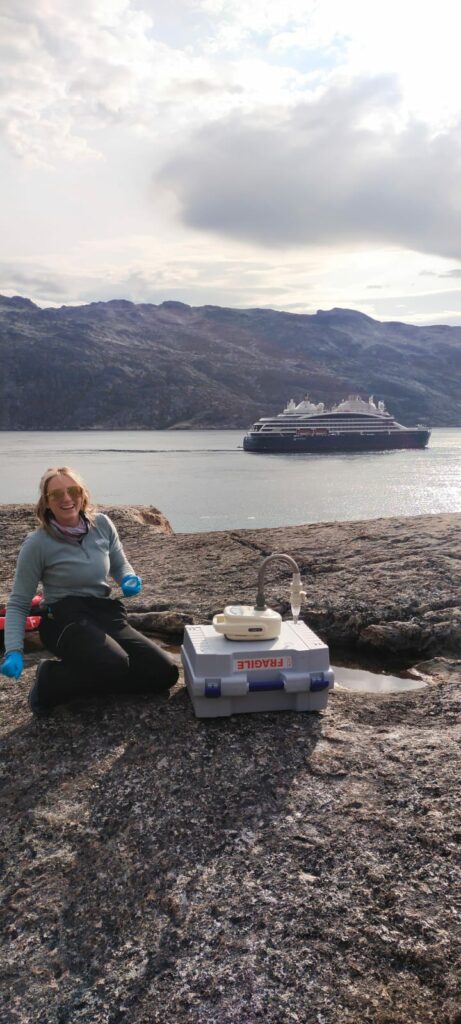
The team could leave the air samplers running for 6 hours at a time. An excellent opportunity to sample onshore and show the passengers how the equipment worked. They received lots of interest from diverse backgrounds, including other scientists and businesspeople. They had lots of opportunities to speak with the passengers about our research. They also gave a few talks that were really well received by the passengers and were rewarding for them too!
While the samplers were running, they had the occasion to do some shore excursions with the passengers. Becky practiced her tour guiding skills, managing to get her group lost in Illulissat, a small town in Greenland. Her group missed the museum but was rewarded, thanks to her ‘terrible’ orientation skills, with a nice iceberg viewing spots and a nice scenic walk.
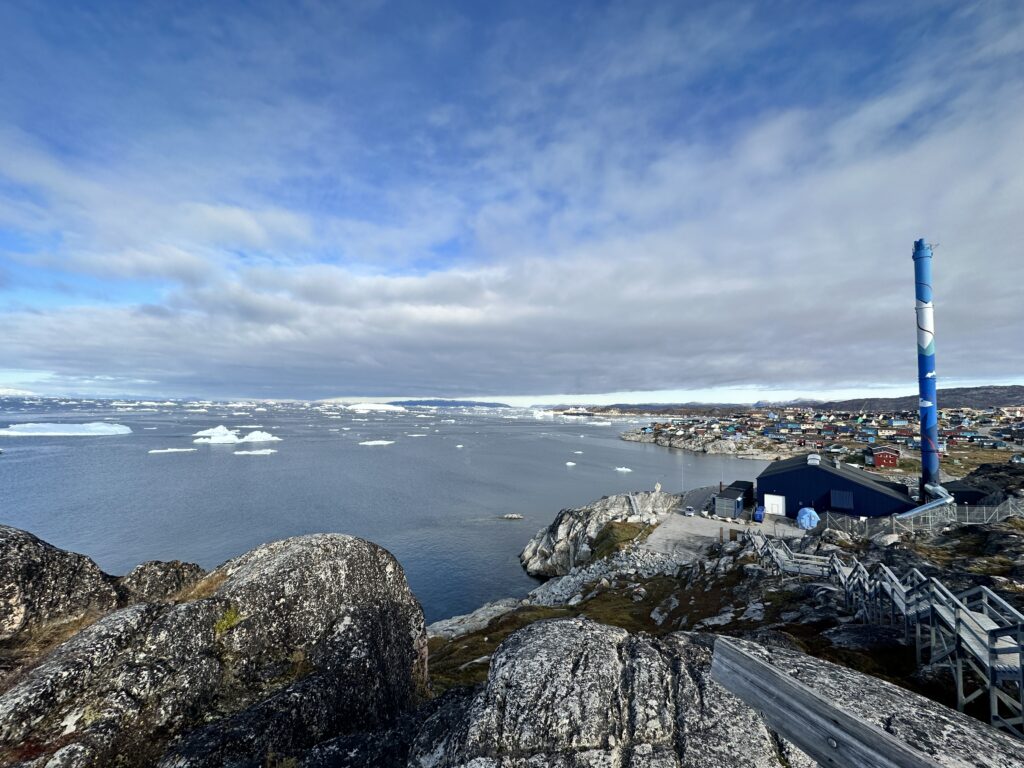
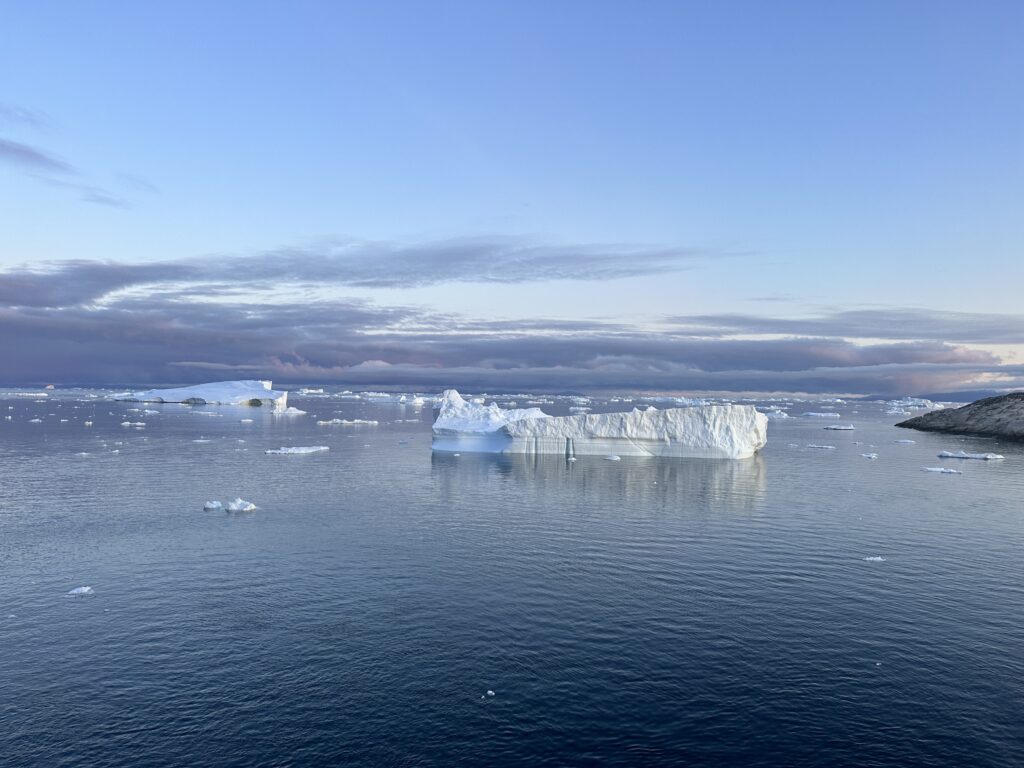
After leaving Greenland and upon entering the Canadian northwest territories, Becky noticed what she thought was fog with a bit of a burning smell. She checked Twitter and the news and saw reports of dense smoke in Nuuk originating from the Canadian wildfires. The reports even ended up on American news channels! The team had a particle analyser to evaluate the composition of the atmosphere and they were able to detect the smoke signature. They downloaded the data from the particle analyser and found distinct peaks in particulates when they sailed through the smoke, and they presented this data to the passengers at the end of the cruise.
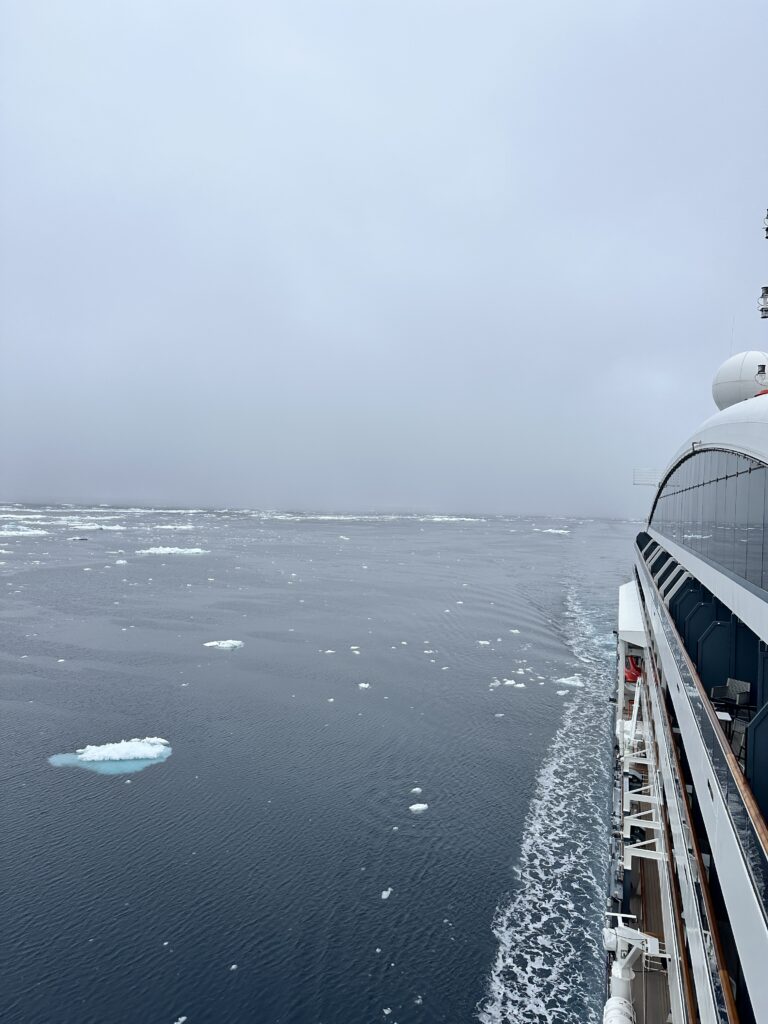
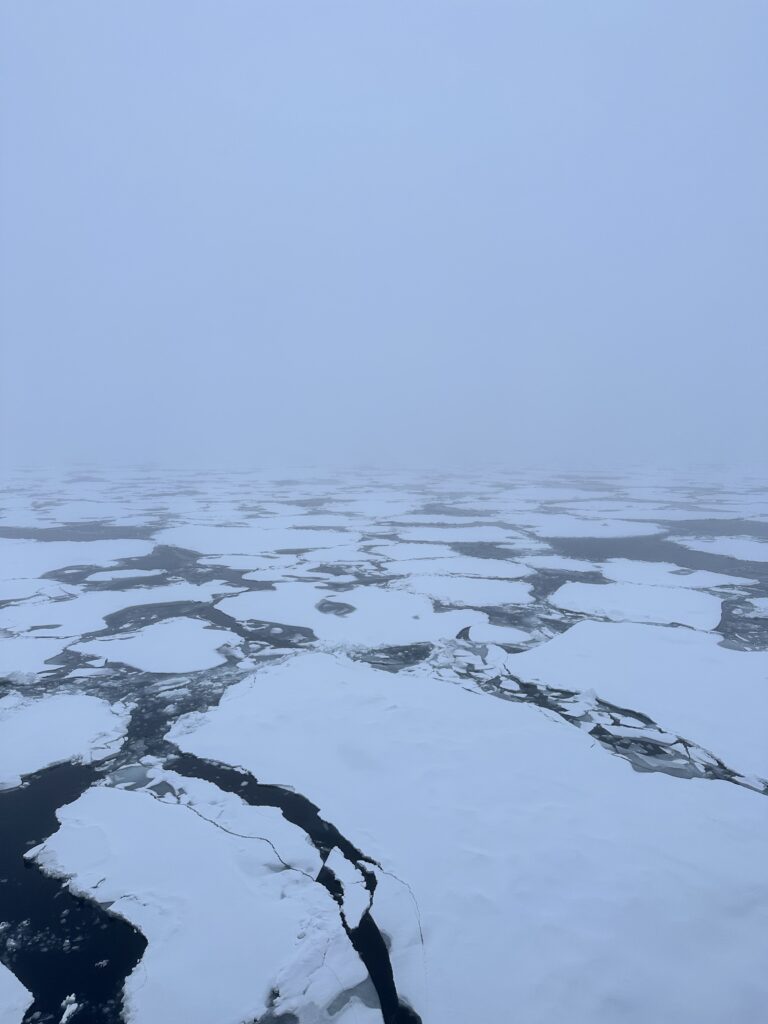
They sailed through sea ice for a few days, making Becky a little seasick, but allowing them to sail the northernmost route of the Northwest Passage. They had a celebration on the helideck with champagne and the chief engineer played bagpipes. While the air samplers were working, and when the wildfire smoke cleared up, the team enjoyed sunsets, coffees with nice views and many polar bear sightings. Twenty-three in total! They saw lots of mama bears and healthy cubs but also got to watch the circle of life with a big male bear eating a seal on the sea ice.
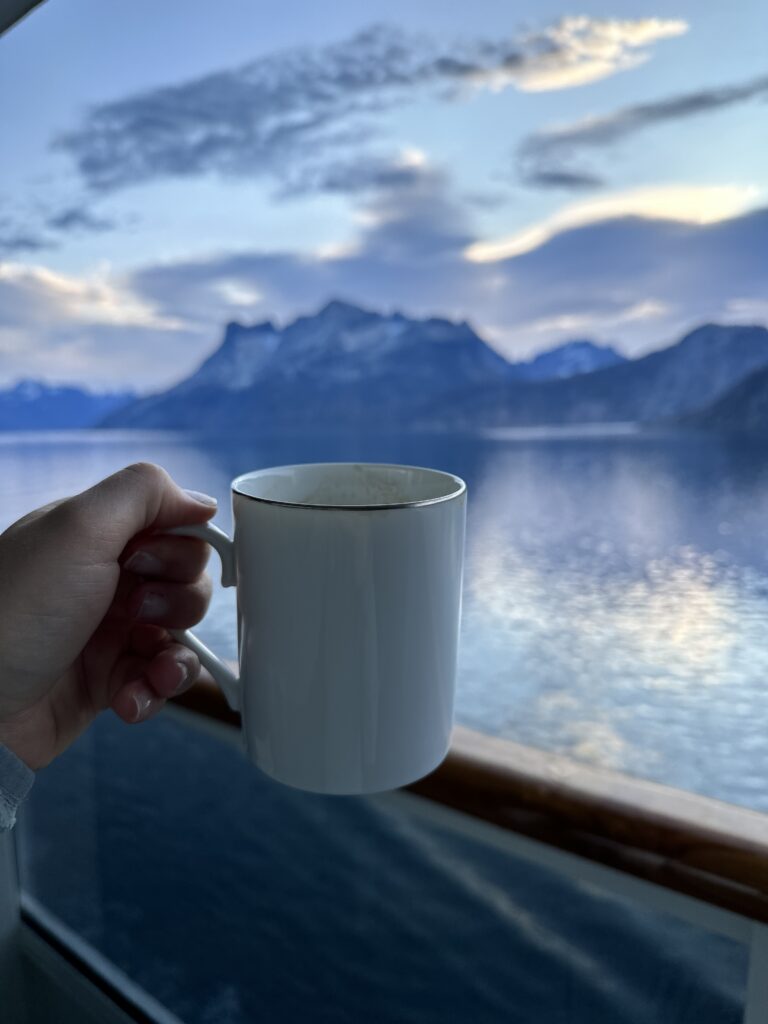
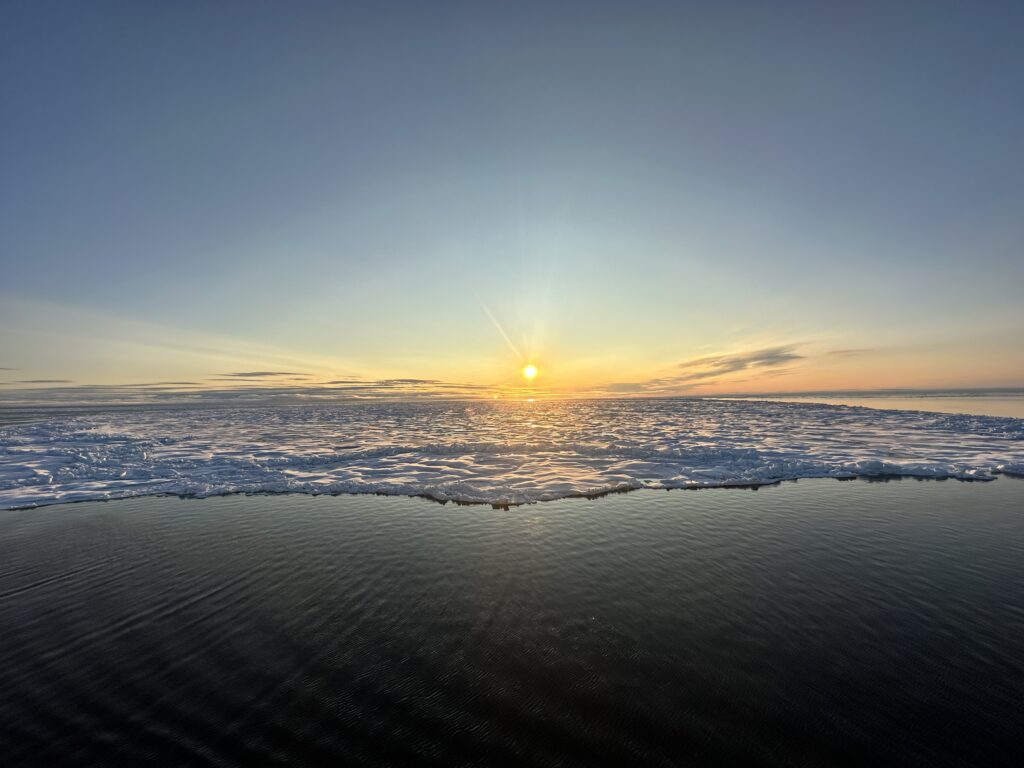

The ship arrived in Nome (Alaska), dropping all the passengers but the sampling team who stayed on until Vancouver (Canada), enjoying the ship for themselves. Once in Vancouver, they flew back home with 90 frozen air samples to analyse in the laboratory!
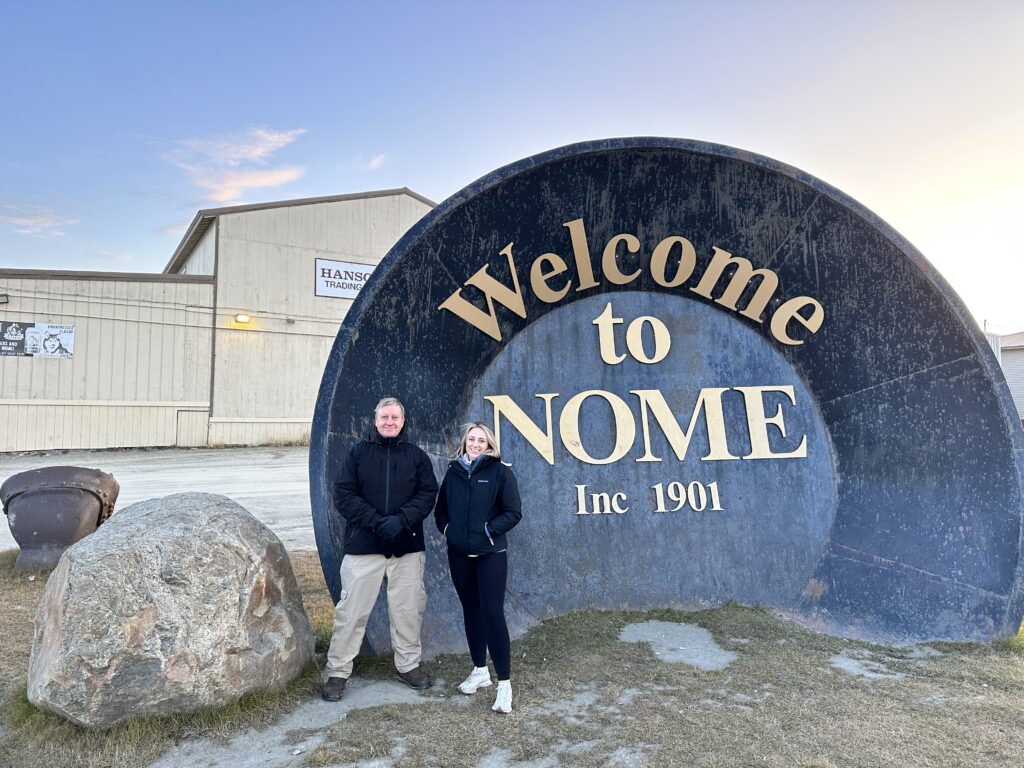
Lucie Malard is a postdoctoral researcher at the Department of Ecology and Evolution at the University of Lausanne, Switzerland. The fieldtrip of her sampling team took place in summer 2023 with financial support from an SPI Exploratory Grant.
Header photograph: © 2023 David Pearce, Rebecca McCerery, all rights reserved